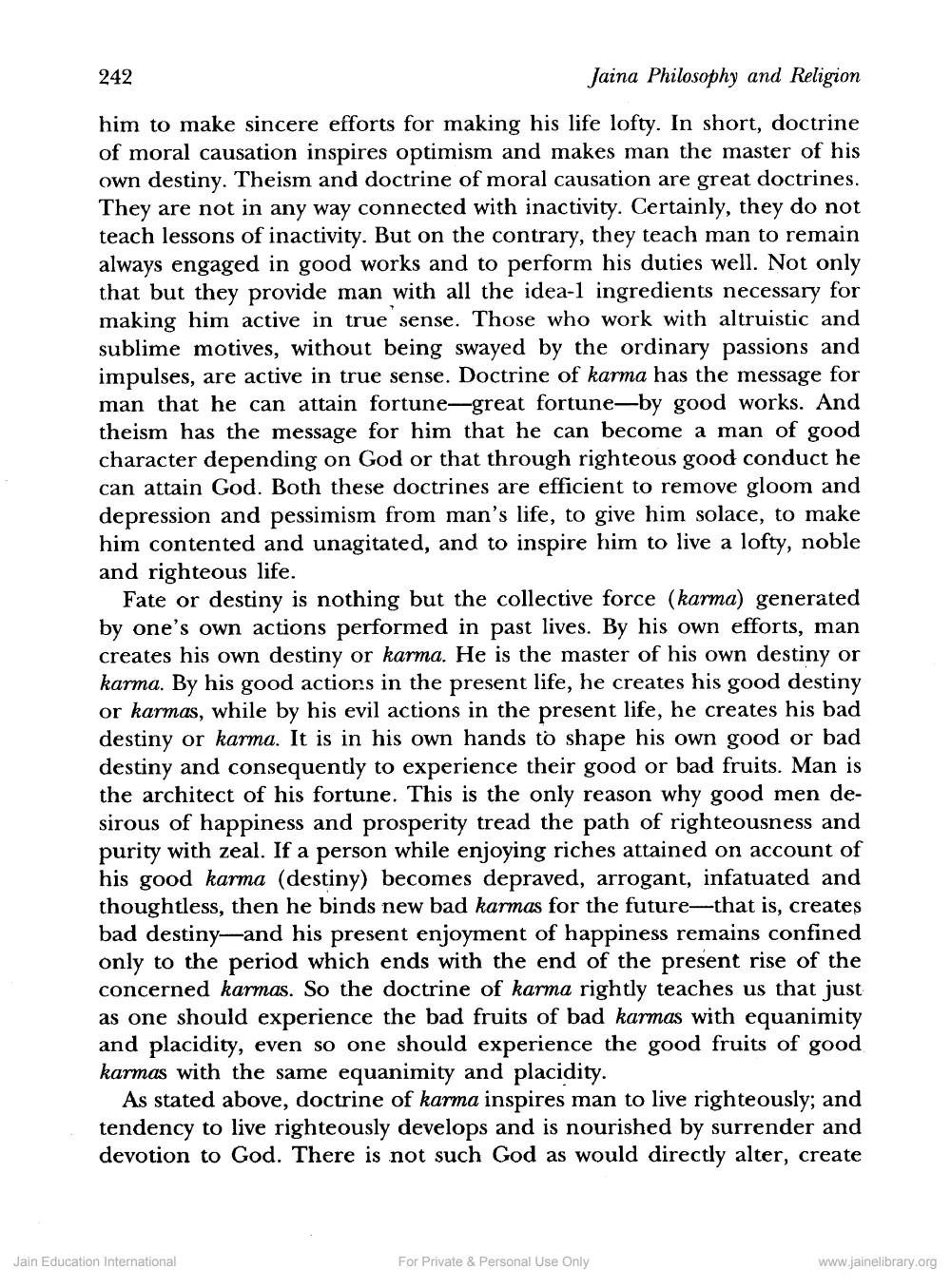________________
242
Jaina Philosophy and Religion
him to make sincere efforts for making his life lofty. In short, doctrine of moral causation inspires optimism and makes man the master of his own destiny. Theism and doctrine of moral causation are great doctrines. They are not in any way connected with inactivity. Certainly, they do not teach lessons of inactivity. But on the contrary, they teach man to remain always engaged in good works and to perform his duties well. Not only that but they provide man with all the idea-l ingredients necessary for making him active in true sense. Those who work with altruistic and sublime motives, without being swayed by the ordinary passions and impulses, are active in true sense. Doctrine of karma has the message for man that he can attain fortune-great fortune-by good works. And theism has the message for him that he can become a man of good character depending on God or that through righteous good conduct he can attain God. Both these doctrines are efficient to remove gloom and depression and pessimism from man's life, to give him solace, to make him contented and unagitated, and to inspire him to live a lofty, noble and righteous life.
Fate or destiny is nothing but the collective force (karma) generated by one's own actions performed in past lives. By his own efforts, man creates his own destiny or karma. He is the master of his own destiny or karma. By his good actions in the present life, he creates his good destiny or karmas, while by his evil actions in the present life, he creates his bad destiny or karma. It is in his own hands to shape his own good or bad destiny and consequently to experience their good or bad fruits. Man is the architect of his fortune. This is the only reason why good men desirous of happiness and prosperity tread the path of righteousness and purity with zeal. If a person while enjoying riches attained on account of his good karma (destiny) becomes depraved, arrogant, infatuated and thoughtless, then he binds new bad karmas for the future-that is, creates bad destiny—and his present enjoyment of happiness remains confined only to the period which ends with the end of the present rise of the concerned karmas. So the doctrine of karma rightly teaches us that just as one should experience the bad fruits of bad karmas with equanimity and placidity, even so one should experience the good fruits of good karmas with the same equanimity and placidity.
As stated above, doctrine of karma inspires man to live righteously; and tendency to live righteously develops and is nourished by surrender and devotion to God. There is not such God as would directly alter, create
Jain Education International
For Private & Personal Use Only
www.jainelibrary.org




